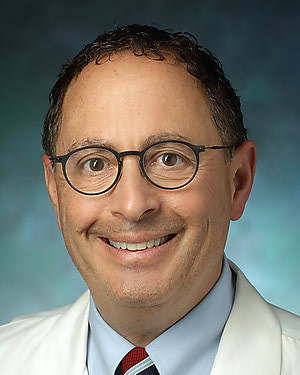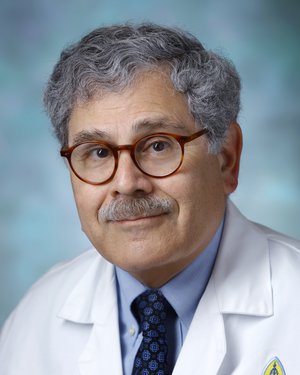Research Lab Results
-
Jun O. Liu Laboratory
The Jun O. Liu Laboratory tests small molecules to see if they react in our bodies to find potential drugs to treat disease. We employ high-throughput screening to identify modulators of various cellular processes and pathways that have been implicated in human diseases from cancer to autoimmune diseases. Once biologically active inhibitors are identified, they will serve both as probes of the biological processes of interest and as leads for the development of new drugs for treating human diseases. Among the biological processes of interest are cancer cell growth and apoptosis, angiogenesis, calcium-dependent signaling pathways, eukaryotic transcription and translation.
-
Jeremy Sugarman Lab
Research in the Jeremy Sugarman Lab focuses on biomedical ethics—particularly, the application of empirical methods and evidence-based standards to the evaluation and analysis of bioethical issues. Our contributions to medical ethics and health policy include work on the ethics of informed consent, umbilical cord blood banking, stem cell research, international HIV prevention research, global health and research oversight.
-
Cardiovascular Stem Cell Program
The research program aims to advance cardiovascular biology and medicine by focusing on pluripotent stem cell-based modeling and therapy and by nurturing future leaders in regenerative medicine. -
Chulan Kwon Laboratory
The C. Kwon Lab studies the cellular and molecular mechanisms governing heart generation and regeneration. The limited regenerative capacity of the heart is a major factor in morbidity and mortality rates: Heart malformation is the most frequent form of human birth defects, and cardiovascular disease is the leading cause of death worldwide. Cardiovascular progenitor cells hold tremendous therapeutic potential due to their unique ability to expand and differentiate into various heart cell types. Our laboratory seeks to understand the fundamental biology and regenerative potential of multi-potent cardiac progenitor cells – building blocks used to form the heart during fetal development — by deciphering the molecular and cellular mechanisms that control their induction, maintenance, and differentiation. We are also interested in elucidating the maturation event of heart muscle cells, an essential process to generate adult cardiomyocytes, which occurs after terminal differentiation of the progenitor cells. We believe this knowledge will contribute to our understanding of congenital and adult heart disease and be instrumental for stem cell-based heart regeneration. We have developed several novel approaches to deconstruct the mechanisms, including the use of animal models and pluripotent stem cell systems. We expect this knowledge will help us better understand heart disease and will be instrumental for stem-cell-based disease modeling and interventions for of heart repair. Dr. Chulan Kwon is an assistant professor of medicine at the Johns Hopkins University Heart and Vascular Institute. -
Center for Epithelial Disorders
The Johns Hopkins Center for Epithelial Disorders focuses on research into the physiology and pathophysiology of epithelial cells (cells that line the cavities and interior surfaces of the body) of the gastrointestinal (GI) tract, liver, pancreas and kidney. Specifically, the center’s research seeks to: -Understand the mechanisms regulating the activity of transport proteins (including channels) of epithelial cells Characterize the mechanisms by which polarity of epithelial cells are maintained -Investigate the mechanisms controlling transcription of epithelial-specific genes Understand the pathophysiological basis of GI and renal diseases that involve the preceding three components -The center also provides a framework for training fellows in gastroenterology and hepatology to become independent investigators. The center is funded primarily through individual investigator-initiated extramural research grant support from the National Institutes of Health (NIH) as well as multi-investigator grants including RO1, PO1, UO1 and R24.
-
Carlo Colantuoni Laboratory
Dr. Colantuoni and his colleagues explore human brain development and molecular mechanisms that give rise to risk for complex brain disease. His team uses genomic technologies to examine human brain tissue as well as stem models and vast public data resources.
-
Gabsang Lee Lab
Human induced pluripotent stem cells (hiPSCs) provide unprecedented opportunities for cell replacement approaches, disease modeling and drug discovery in a patient-specific manner. The Gabsang Lee Lab focuses on the neural crest lineage and skeletal muscle tissue, in terms of their fate-determination processes as well as relevant genetic disorders. Previously, we studied a human genetic disorder (familial dysautonomia, or FD) with hiPSCs and found that FD-specific neural crest cells have low levels of genes needed to make autonomous neurons--the ones needed for the ""fight-or-flight"" response. In an effort to discover novel drugs, we performed high-throughput screening with a compound library using FD patient-derived neural crest cells. We recently established a direct conversion methodology, turning patient fibroblasts into ""induced neural crest (iNC)"" that also exhibit disease-related phenotypes, just as the FD-hiPSC-derived neural crest. We're extending our research to the neural crest's neighboring cells, somite. Using multiple genetic reporter systems, we identified sufficient cues for directing hiPSCs into somite stage, followed by skeletal muscle lineages. This novel approach can straightforwardly apply to muscular dystrophies, resulting in expandable myoblasts in a patient-specific manner. -
Grayson Lab for Craniofacial and Orthopaedic Tissue Engineering
The Grayson Lab focuses on craniofacial and orthopaedic tissue engineering. Our research addresses the challenges associated with spatio-temporal control of stem cell fate in order to engineer complex tissue constructs. We are developing innovative methods to guide stem cell differentiation patterns and create patient-specific grafts with functional biological and mechanical characteristics. We employ engineering techniques to accurately control growth factor delivery to cells in biomaterial scaffolds as well as to design advanced bioreactors capable of maintaining cell viability in large tissue constructs. These technologies are used to enable precise control of the cellular microenvironment and uniquely address fundamental questions regarding the application of biophysical cues to regulate stem cell differentiation. -
Green Group
The Green Group is the biomaterials and drug delivery laboratory in the Biomedical Engineering Department at the Johns Hopkins University School of Medicine. Our broad research interests are in cellular engineering and in nanobiotechnology. We are particularly interested in biomaterials, controlled drug delivery, stem cells, gene therapy, and immunobioengineering. We are working on the chemistry/biology/engineering interface to answer fundamental scientific questions and create innovative technologies and therapeutics that can directly benefit human health.
-
Greider Lab
The Greider lab uses biochemistry to study telomerase and cellular and organismal consequences of telomere dysfunction. Telomeres protect chromosome ends from being recognized as DNA damage and chromosomal rearrangements. Conventional replication leads to telomere shortening, but telomere length is maintained by the enzyme telomerase. Telomerase is required for cells that undergo many rounds of divisions, especially tumor cells and some stem cells. The lab has generated telomerase null mice that are viable and show progressive telomere shortening for up to six generations. In the later generations, when telomeres are short, cells die via apoptosis or senescence. Crosses of these telomerase null mice to other tumor prone mice show that tumor formation can be greatly reduced by short telomeres. The lab also is using the telomerase null mice to explore the essential role of telomerase stem cell viability. Telomerase mutations cause autosomal dominant dyskeratosis congenita. People with this disease die of bone marrow failure, likely due to stem cell loss. The lab has developed a mouse model to study this disease. Future work in the lab will focus on identifying genes that induce DNA damage in response to short telomeres, identifying how telomeres are processed and how telomere elongation is regulated.
